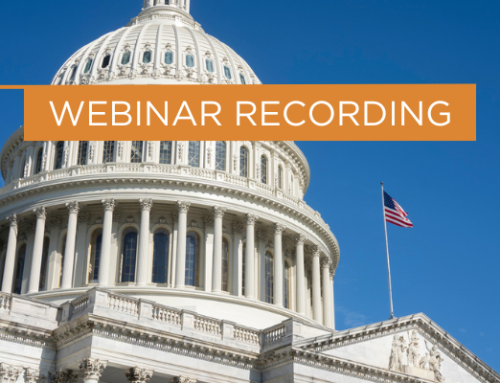Fundraising is an essential part of running a nonprofit. For most organizations, individual donations are vital to the ongoing success of programs and operations. And the rise in crowdfunding and online giving platforms means that charities can reach even more people than before. With that increased reach also may come increased state regulatory requirements.
Whether an existing nonprofit leader is considering registering in other states or a new founder is learning how to file the initial paperwork, understanding state registration rules is vital to an organization’s ability to fundraise. State nonprofit registration rules vary; and since states govern nonprofit status, it’s important that organizations complete all necessary registrations to ensure federal tax-exempt status.
How Does a Charity Register in Its Home State?
There are various state statutes, called solicitation laws, that are primarily concerned with the solicitation of charitable contributions from the public.
Generally, states exercise regulatory authority over nonprofits based on whether the organization is physically present in the state. Nexus can be established using an office, owning real estate, conducting program activities, or if the charity raises funds in the state.
Compliance with various state solicitation laws is divided into two pieces:
- Registration, which provides information about an organization’s finances and governances, and
- Annual financial reporting, which keeps the state apprised about the organization’s operations; there is an emphasis on fundraising results and practices.
Exceptions to state registration may include:
- Educational institutions
- Religious groups
- Organizations that only solicit their own members
Individual State Registration
Around 40 states currently have statutes in place that require charitable organizations to register before they can solicit charitable donations. Even if a charity doesn’t actively solicit donations from a certain state, if it has a donate button on the website or social media, some states consider that to be soliciting donations and thus would trigger the registration requirement.
Virginia, Maryland, and North Carolina are all the same in that they require nonprofits to register before they can fundraise. They each have slightly different rules and requirements.
Virginia
Virginia provides oversight for charities from the Department of Agriculture and Consumer Services Office of Charitable and Regulator Programs. Charities in Virginia need to file Form 102 initially and on an annual basis. A list of required information is available here.
Exemptions include churches, educational and healthcare institutions, labor unions and professional associations, and others. Additionally, charities don’t need to register in Virginia if they solicit or receive less than $5,000 for the three prior years or if their solicitations are limited to five or fewer contiguous cities and counties.
Virginia requires an initial $100 fee and then annual registration fees that slide based on revenues. After the initial registration, Virginia requires charities to refile by the 15th day of the fifth month following the fiscal year-end.
Maryland
Maryland requires that a charitable organization soliciting in the state file with the Office of the Secretary of State. Form COR-92 is required along with other identifying and financial information for an initial registration. An independent financial statement review is required if contributions exceed $300,000; $750,000 and above, and a financial statement audit will be required.
Exemptions are available for religious and affiliated organizations, organizations soliciting only from their own members, parent-teacher or youth sports organizations that receive less than $25,000 in contributions per year, public safety organizations (like fire departments), and organizations that only receive contributions from for-profit corporations and foundations.
A fee of $0 to $300 is required depending on how many charitable contributions are received. Organizations are required to renew their registration annually within 10.5 months after the fiscal year-end.
North Carolina
In North Carolina, charities must first obtain a license from the Charities Division. There is an online application to register.
Exemptions are available for religious, healthcare, and educational institutions, government entities, and others as well as contributions of less than $25,000 per year, though that does require an annual departmental review.
Fees range from $0 to $200 depending on gross revenues ranging from less than $25,000 to over $200,000. The solicitation license application form looks like this.
Bonus: Washington, D.C.
Washington, D.C. has a fundraising solicitation law, too. Initial nonprofit registration requires completing Form DNP-1 and sending it to the Superintendent, along with a $100 fee. Charities will need to file online with the DC.gov website. Annual registration is required.
Other Resources
There is a service that can help charitable organizations with multiple state registrations. The Unified Registration Statement is an effort to consolidate information and data requirements of all states requiring registration. Organized by the National Association of State Charities Officials and the National Association of Attorney General, the project’s aim is to standardize, simplify, and economize compliance under the states’ solicitation laws.
The Multistate Filer Project has a neat chart that provides a nice checklist for initial registrations for each state.
Registering in Other States
Then there’s the question of soliciting and accepting online donations from donors in other states. A charity needs to register in all states in which it operates and solicits funds. That is, it must provide identifying information about the nonprofit and its operations to almost any state where donations come from.
There are caveats, though. Charitable organizations generally won’t need to register in a state to simply accept donations there; however, they may need to submit annual disclosures.
Sometimes, registration in another state still isn’t necessary if the organization is in an exempt category or fails to meet the dollar threshold for donations.
Organizations must also consider whether the out-of-state donation is substantial or reoccurring; if so, even if the organization didn’t solicit the donation, then registration in that state is probably required.
In any case, it’s wise to consult a nonprofit tax expert to handle state registrations. There are differences in state rules and definitions, and the paperwork involved can become detailed quickly. Compliance with federal and state statutes and regulations is the first basic and ongoing requirement for charitable organizations. Except for a handful of exempt categories, fundraising often cannot be done without proper registration.
Are you starting a nonprofit in Virginia, Maryland, or North Carolina? Contact Edward Yoder, CPA, MSA, Partner in the firm’s Not-for-Profit practice, or your PBMares tax representative for help navigating state registration rules.





